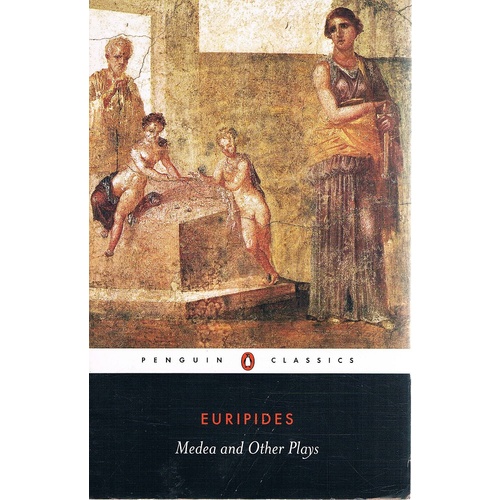
My children! They will dwell with us, aye, thereįar off, and give thee peace. Down, down, thou tortured thing, and spare If we take lines 1057-69 in Kovac’s numbering, part of that repetitious, disputed passage where the hitherto resolute Medea seems to lose her way:Īh, Ah, thou Wrath within me! Do not thou.ĭo not. No translation carries over all the features of the original, and it may help to compare the trade-offs made by various renderings. Comparison of RenderingsĪs will be clear, Ocaso Press's rendering tries to do something different, not replicate features of the original, but create something that works in the English literary tradition as Euripides does in the Greek. The Chorus sections are generally prose fragments, but occasionally adopt metre and lyricism: lines 832-3 in Kovac’s numbering: Her ways are too wild, her nature is harmful. Hurry up now and get yourselves inside the house-īut don’t get too close to her, don’t let her see you: The anapaest sections are again not strictly anapaests, but do give lines that can be vigorously chanted: e.g. It is older readers who may miss the range and effectiveness of traditional measures, seeing the dialogue possibly as stress verse: five beats to the line, with a diction close to everyday speech, making for naturalness but not poetry. Many students will find this a helpful approach, and not worry that the result is only nominally English verse.

Svarlien’s is a contemporary translation: clear, lively and intelligent, with impressive set of stated aims: to be faithful to the diction, tone, connotation, context, echo, image, euphony and image, and to render dialogue, lyric and anapaest sections by different English measures. 'Longing to die' is an orphan in the text. The meaning of 'The cup of all life is shattered in my hand' is clear in context, but a rendering so free as to become an interpolation. I dazzle should perhaps be I am dazzled, though dazzled is not the right word for numbing grief. Kovac’s is closer to contemporary idiom, though 'undone' has connotations of melodrama, and I want to die sounds a little peevish. Coleridge’s version is the more compact but very dated. Holcombe) Translation (2010)īut, friends, remember that this severing blowĢ30. For the man in whom all I had was bound up, as well I know - my husband - has proved the basest of men.


I have resigned all joy in life, and I want to die. In my case, however, this sudden blow that has struck me has destroyed my life. Later Medea Translations: David Kovacs (1994/2001) Whom to know well was all the world to me, The cup of all life shattered in my hand, Hath sapped my soul: I dazzle where I stand, This thing undreamed of, sudden from on high,


 0 kommentar(er)
0 kommentar(er)
